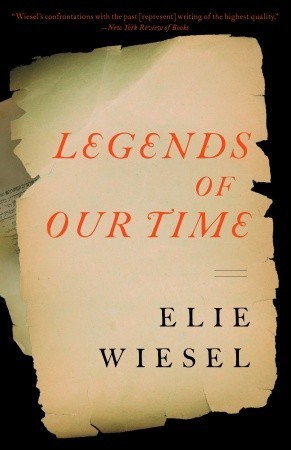
As a child in Sighet, as a young boy in Auschwitz, as a teenage displaced person wandering through post-World War II Europe, as a young man at the beginning of his career as a writer, witness, and human-rights activist, Elie Wiesel had haunting, often surreal encounters with a wide range of people—sages, mystics, teachers, and dreamers. In Legends of Our Time, he shares with us some of their stories. On a Tel Aviv bus, Wiesel encounters a notorious Auschwitz barracks chief who forces him to confront past demons that he thought had long since been laid to rest. While traveling through Spain, he is approached by a young Catholic man holding an ancient family document in an unfamiliar language; written in Hebrew in 1492 by the man’s Marrano ancestor, it proudly proclaims to future generations the family’s Jewish origins. Twenty years after being deported from Sighet, Wiesel returns to discover that the only thing missing are the towns 10,000 Jews and the collective memory of their ever having existed. In a Moscow synagogue in the fall on 1967, Wiesel finds a sanctuary filled with young Jews who have miraculously educated themselves in their history and ancient language, who sing Hebrew songs in the street as KGB agents take down names. And from a rabbi in Auschwitz who fasted on Yom Kippur, Wiesel leans that there is more than one way to confront a God who seems to have abandoned His people.
Author

Eliezer Wiesel was a Romania-born American novelist, political activist, and Holocaust survivor of Hungarian Jewish descent. He was the author of over 40 books, the best known of which is Night, a memoir that describes his experiences during the Holocaust and his imprisonment in several concentration camps. Wiesel was awarded the Nobel Peace Prize in 1986. The Norwegian Nobel Committee called him a "messenger to mankind," noting that through his struggle to come to terms with "his own personal experience of total humiliation and of the utter contempt for humanity shown in Hitler's death camps," as well as his "practical work in the cause of peace," Wiesel has delivered a powerful message "of peace, atonement and human dignity" to humanity. On November 30, 2006 Wiesel received an honorary knighthood in London, England in recognition of his work toward raising Holocaust education in the United Kingdom. http://us.macmillan.com/author/eliewi...